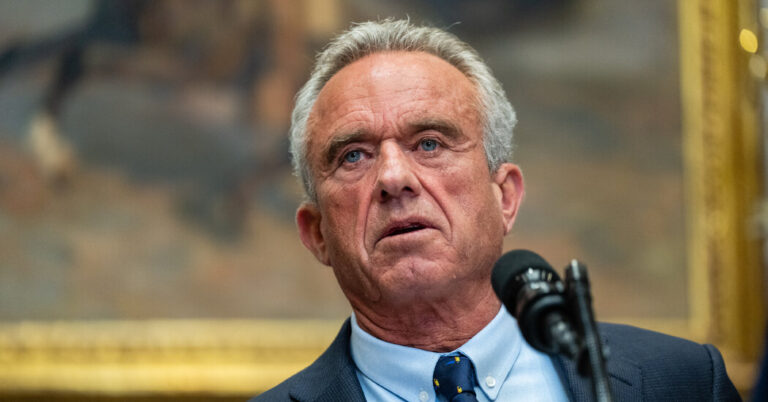
During one of the busiest times in New Orleans this year — Super Bowl weekend — Lydia Castro realized that a glitch in Resy had made reservations for her Mexican restaurant, Acamaya, appear unavailable to diners. On what should have been a banner night, tables would be empty.
As if on cue, an OpenTable employee walked into the restaurant with a cooler filled with Gatorade and candy, and wished her luck for the weekend ahead. Not long after, the company reached out with an offer: Switch to OpenTable and set a few prime-time reservations aside for select Visa customers. In exchange, the restaurant would receive a generous one-time payment.
Ms. Castro declined to disclose the amount because she hasn’t decided whether or not she is taking the deal, but it was enough for her to seriously consider a change. “How do they have so much money to give out to people?” she said.
The answer: credit card companies. Last year, OpenTable, home to more than 60,000 restaurant clients, signed a partnership with Visa that gives certain cardholders access to coveted reservation slots at popular restaurants. Six years ago, American Express purchased Resy — used by more than 20,000 restaurants — and added Tock to its portfolio last year. Since 2021, American Express has offered premium cardholders access to in-demand reservations on Resy.
As a result, some of the country’s best-known chefs have been placed squarely in the center of the credit card wars as restaurants become invaluable cultural currency for financial institutions chasing young, wealthy customers.
“They are obviously trying to build a roster of ‘All these are the cool restaurants, we want them with us,’ ” said Ms. Castro.
In interviews and messages, eight restaurateurs across the United States — who spoke on the condition of anonymity because they had signed nondisclosure agreements — said they had been offered cash deals from OpenTable that ranged from $40,000 to $95,000 to make the switch. (That’s a pittance compared with the $187 billion in swipe fees that American businesses pay credit card companies each year, according to the National Restaurant Association.)
This is because diners who frequent high-end restaurants are an especially coveted audience for credit card companies, as they “have more disposable income, higher net worth, higher credit scores,” said Nick Ewen, the senior editorial director at The Points Guy, a travel website that also reviews credit cards. In a report from the market research firm Mintel, dining was the No. 1 planned spending category in 2025 among customers ages 25 to 34.
Ms. Castro may be undecided, but for the restaurateurs that did accept the money, the sentiment was more or less the same: conflicted about becoming pawns in a corporate wrestling match, but thankful for the cash infusion at a time when operating costs have never been higher and margins have never been slimmer.
“It feels kind of weird that restaurants are this hot commodity,” said Fermín Núñez, a chef in Austin, Texas, who moved his three restaurants — Este, Suerte and Bar Toti — to OpenTable six months ago after receiving cash and sponsorship for an anniversary event. “It is a golden era, and I don’t know how long it is going to last, so we might as well ride the wave.”
Debby Soo, the chief executive of OpenTable, said these cash payments are part of a strategy to get “the best and trendiest and hottest, most popular, most awarded” restaurants on OpenTable, a platform that has lagged behind in that particular category for several years.
“The top echelon of restaurants, they are market movers,” Ms. Soo said. If they adopt OpenTable, she said, other restaurants may follow.
Starting in 2020, Ms. Soo kicked off a technological overhaul of OpenTable, adding features like bot detection, credit card holds for bookings and a feature that notifies diners if a reservation becomes available. These changes helped, but a key element in persuading restaurants to switch was Visa — and the money it was able to offer restaurants.
Ms. Soo said the exact sum offered to a restaurant depends on a few factors, including location, demand and the deal it is receiving from its current reservation service.
In response to the poaching, Pablo Rivero, the chief executive of Resy, said, “We will continue to invest in long-term partnerships, because partnerships are more important than a one-time check.” He declined to share specifics, but said Resy had hosted or sponsored 230 restaurant events in 2024 — a record for the company — and pointed to the American Express acquisition of Tock, which brought 7,000 more restaurants under the same umbrella.
It was the acquisition of Tock that made Greg Ryan, an owner of Bell’s, a French bistro in Los Alamos, Calif., nervous that he would be forced to switch from Tock to Resy. He didn’t feel much more excited about OpenTable, which he saw as “antiquated,” he said.
But a year and a half ago, when OpenTable showed him its improved technology and promised a dedicated representative, and he realized that other respected restaurants, like Kato in Los Angeles, had moved to OpenTable, he was impressed.
The cash certainly helped, too.
“We need to find as many opportunities to figure out how to pay our teams more, how to have the resources to deliver a better product, to be able to grow in some way,” Mr. Ryan said. “If someone is willing to help that while also feeling very much like a partner, I am OK with that.”
These payments also come at a time when some restaurants are feeling frustrated with Resy: it glitches frequently, a few owners said, and the company has rested on its cool-kid laurels rather than improve its technology or customer service. In an emailed response, Mr. Rivero said his company’s platform had “released more product updates in 2024 than in any year in Resy’s history,” including protections against reservation fraud and tools for turning tables faster, but he did not address the issue of glitching.
Even so, some restaurateurs still believe that Resy is the best place to find younger, cooler customers.
“There is a certain type of diner that is on Resy that we feel is more our customer base,” said Peter Cho, who runs the Korean American restaurants Han Oak and Jeju in Portland, Ore., and accepted a cash offer from OpenTable last year. “When we switched to OpenTable, we felt a drop-off in the guest count.”
But his restaurants needed the money. Tourism to Portland has declined, he said, and Feast, a major food festival in the city, shut down in 2022. So he took the deal.
Not everyone has been swayed by the cash offers. Cherif Mbodji, a partner and chief operating officer for the fine-dining restaurants Bludorn, Navy Blue, Bar Bludorn and Perseid in Houston, turned OpenTable down after the company offered “a lot of money” last year, he said.
It was not worth the hassle of transitioning the restaurants’ guest databases to another system, Mr. Mbodji said, and he was happy with the Resy partnership, including its sponsorship support for several of the restaurants’ events each year. But Mr. Mbodji understands why so many owners have taken the deal. “It is hard to say no when your restaurant is fighting to exist.”
OpenTable said nearly 900 restaurants have joined its Visa dining program since it started last year, though not all have received cash incentives. The question for many of restaurateurs is what happens next.
“What if Amex in three years is like, ‘We are going to throw some serious money to get these key restaurants?’ ” said Erin Pommer, the director of brand for Frasca Hospitality Group, which runs six restaurants in Colorado and has moved five of them to OpenTable since receiving a cash offer. Restaurants’ loyalty to OpenTable “is going to be tested in how the relationship is managed after everybody is converted.”




